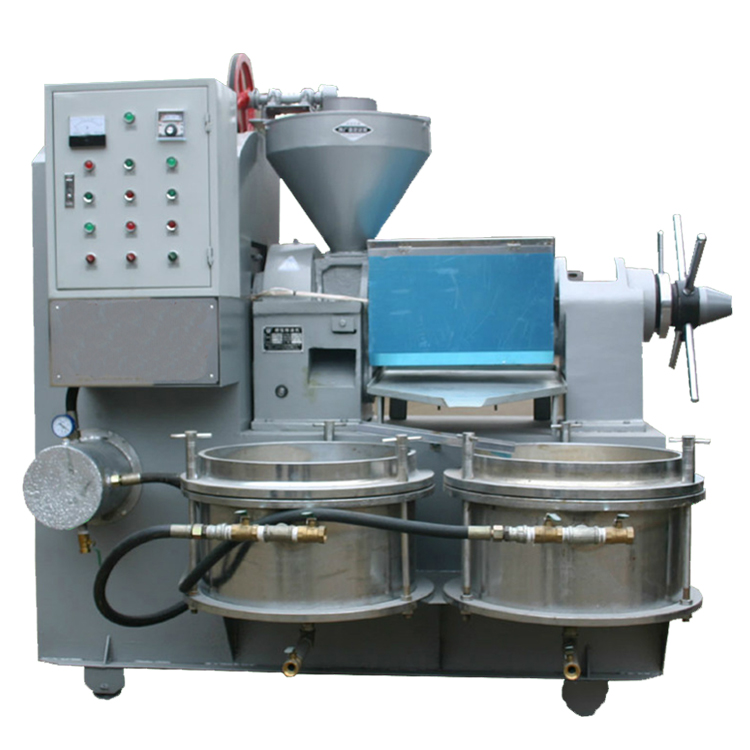Aug . 14, 2024 01:56 Back to list
Exploring the Benefits and Applications of Copra Oil Expellers in China's Agricultural Industry
The Growing Demand for Copra Oil Expellers in China
In recent years, China has witnessed a significant rise in the demand for copra oil, which is extracted from the dried meat or kernel of coconuts. This increase in demand has fueled the growth of the copra oil expeller market in the country. An expeller is a mechanical device used to extract oil from seeds and nuts, making it a critical component in the production of edible oils, including copra oil.
Understanding Copra Oil
Copra oil is rich in saturated fats and is widely used in cooking, baking, and the production of various food products. Besides its culinary applications, copra oil is also utilized in the cosmetic and personal care industries due to its moisturizing properties. The increasing awareness of health and nutrition among consumers has led to a surge in demand for natural and organic oils, positioning copra oil as a popular choice.
Given its versatile applications, the need for copra oil expellers has grown considerably. These machines facilitate the efficient extraction of oil, offering several advantages over traditional methods such as solvent extraction. Expellers provide a more eco-friendly and sustainable solution, which aligns well with the growing trend toward sustainability in food production.
Rise of Copra Oil Expeller Manufacturers
With the escalating demand for copra oil, numerous manufacturers and suppliers of copra oil expellers have emerged in China. These manufacturers are focusing on producing high-quality, efficient, and energy-saving expellers. Innovations in technology have led to the development of various types of expellers, including cold-press and hot-press models.
Cold-press expellers are popular as they preserve the natural flavor and nutritional value of the oil, making them appealing to health-conscious consumers. On the other hand, hot-press expellers are known for their higher oil yield, which can significantly boost production efficiency for large-scale operations. This variety allows producers to select the best machinery based on their specific needs and production scales.
china copra oil expeller

Economic Impact
The expansion of the copra oil expelling industry is playing a crucial role in the Chinese economy, particularly in rural areas where coconut farming is prevalent. As demand for copra oil increases, farmers benefit from higher prices for their produce, thereby improving their livelihoods. Furthermore, the growth of expeller manufacturing not only creates jobs within the production and assembly sectors but also stimulates related industries such as coconut farming, logistics, and retail.
Moreover, the Chinese government has been supportive of the palm oil and coconut oil sectors, recognizing their potential for economic growth and job creation. Initiatives aimed at enhancing agricultural practices and supporting smallholder farmers have been implemented, leading to increased investment in copra cultivation and oil extraction technologies.
Challenges and Opportunities
Despite the promising growth trajectory, the copra oil expeller market in China faces challenges such as competition from other vegetable oils and fluctuations in raw material prices. Additionally, there is a need for continuous innovation to enhance the efficiency and sustainability of oil extraction methods.
However, opportunities abound. With rising health awareness, the demand for natural oils is likely to continue growing, positioning copra oil as a favorable option. Furthermore, advancements in technology can lead to more efficient expelling processes and better-quality oils, further enhancing market appeal.
Conclusion
The copra oil expeller market in China is poised for robust growth, driven by increasing demand for natural and organic oils, economic opportunities for farmers, and advancements in technology. As the industry evolves, ensuring sustainability and efficiency will be crucial to meeting consumer preferences and addressing market challenges. The future looks bright for the copra oil expeller sector, with significant potential for innovation, growth, and contributing to a sustainable economy.
-
High-Efficiency Peanut Oil Refined Machine for Quality Oil Production Leading Exporters & Companies
NewsJul.08,2025
-
High Efficiency Sunflower Seed Oil Press – Leading Cooking Oil Press Machine Factories & Suppliers
NewsJul.08,2025
-
High-Efficiency Soybean Oil Press Machine – Leading Exporters & Reliable Companies
NewsJul.07,2025
-
High-Efficiency Seed to Oil Extractor – Reliable Extraction Machinery for Your Business
NewsJul.07,2025
-
High-Quality Pressing Screw of Oil Expeller for Efficient Oil Extraction Leading Exporters & Manufacturers
NewsJul.06,2025
-
High-Efficiency Essential Oil Extraction Machine Trusted Exporters & Companies
NewsJul.06,2025
